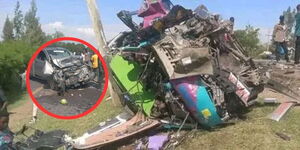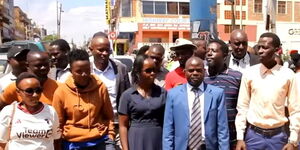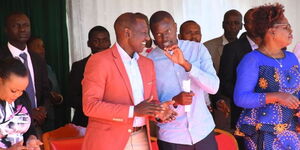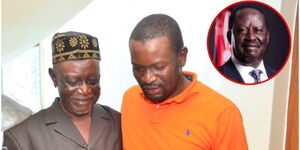The Maasai Community is known to inhabit the arid and semi-arid regions in Kenya in tune with their nomadic lifestyle. The harsh conditions of the near-desert areas can be challenging to live in, especially due to the long drought periods and the long search for pasture.
In the Southen part of Kenya, the Maasai community has taken up digging holes, referred to as rainwater bunds, to reclaim the land from the desert effects and have vegetation for their livestock.
The communities in collaboration with Justdiggit, a Dutch foundation that restores degraded ecosystems by developing, initiating, and co-funding large-scale landscape restoration programs within Africa, has dug over 16,248 semi-circular rainwater bunds since 2016.
They have successfully re-greened 1,250 hectares of grass - and woodland in and around Amboseli National Park.
What makes these holes special enough to transform a desert into a green haven, you may ask?
Bunds are pits in the ground in the shape of a crescent moon. By digging, the hard top layer of the earth is opened up, ensuring rainwater is retained.
These special holes capture rain which would otherwise wash away over the dry and barren soil. The rainwater is slowed down and stored temporarily behind the bund, enabling the water to infiltrate the soil.
"Seeds which are present in the soil start to grow and re-green the bunds and also the spaces in between. And further destructive erosion by gullies is prevented and even reversed," the organisation explains.
The semi-circular shape of the bunds is an optimal balance between the amount of water captured and the labor requirements.
The holes are 2.5 meters long and 5 meters wide, which is estimated to be the size of an adult elephant.
They are dug on slopes, with the ‘closed’ side of the bunds directing downhills. This way they can capture the water running downhill.
They do not only capture the rainwater, they also make sure that the water running downhills in between the bunds is slowed down. Now the water also has a chance to enter the soil in between the bunds.
The organisation operates on different sites in Kenya engaging the Maasai Wilderness Conservation Trust (MWCT)
In the Kuku area, for example, 885 hectares were regreened successfully using the technique. To engage the community, grass seed banks have been initiated and managed by Maasai women.
"This re-greened the barren area near their doma (small settlement). They harvest seeds and grasses which generates income while the landscape is restored at the same time," JustDiggIt explains on their website.
The organisation also deploys a media and communication-based strategy, involving all available communication and media on a local, regional, national and international level.
The communities are set to continue digging following disruption by the Covid-19 pandemic.
"Because of an exceptionally long rainy season (mid-November to mid-March) and COVID-19 we had to postpone the digging. Together with our partner Maasai Wilderness Conservation Trust (MWCT) we have developed a protocol that makes it possible to dig bunds in a safe way,"












